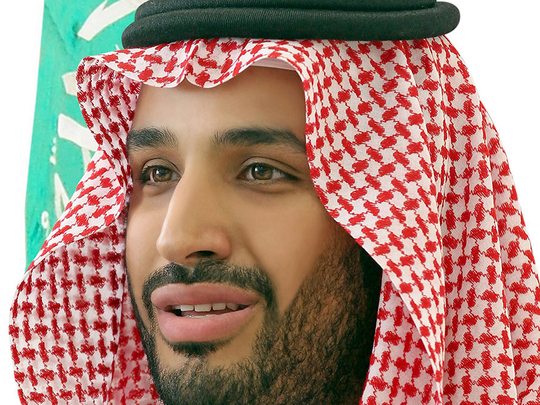
Just about a month ago, a master plan called ‘Vision 2030’ was unveiled by the Saudi Deputy Crown Prince Mohammad Bin Salman amid much fanfare and expectation. With major challenges faced on the economic and social fronts, the government had to act and soon. Thus, a detailed plan was revealed, one that will not only transform the Kingdom but has the potential to ensure its prosperity for decades to come as some financial pundits are predicting.
The Saudi leadership is well aware that time is of the essence here if it is to avoid the pitfalls of financial disruption that confront many other countries. It simply cannot afford that with a fast-growing and youthful population. It is seeking to diversify its energy away from oil and increase resources through various non-oil mechanisms. With the future of oil business volatile and cyclical in nature, Saudi Arabia simply cannot afford to base its growth on oil-market predictions.
Thus, Vision 2030 was born. Saudi Arabia recorded a budget deficit of $98 billion (Dh360.44 billion) in 2015 and projections for this year put the budgetary deficit around $86 billion. These are large numbers for a country accustomed to be awash with revenue and whose citizens have benefited a great deal from the abundance of ‘black gold’. The shortfall was covered by the country’s vast reserves, but falling oil prices and rising expectations have contributed to the country relying on its reserves to make the economy run.
The International Monetary Fund warned last October that if the withdrawals continued, Saudi Arabia could be bankrupt by 2020. Financial analysts at Bloomberg have made an even bleaker forecast. They were not shy to predict that if the current practice of drawing on the reserves continues at a pace faster than before, then Saudi Arabia will be faced with “insolvency by early 2017”.
Vision 2030 calls for an increase in non-oil government revenue from 163 billion Saudi riyals (Dh159.7 billion) to 1 trillion riyals. The private sector’s contribution to the economy will be pushed from the current 40 per cent to 65 per cent of gross domestic product. Steps will be taken to raise the share of non-oil exports in the gross domestic product from 16 per cent to 50 per cent. Among other features, the plan calls for an increase in foreign direct investment from 3.8 per cent to 5.7 per cent of GDP and increase in the localisation of oil-and-gas sectors from the current 40 per cent to 75 per cent.
To increase non-oil revenues, there are plans to levy taxation through subsidy reforms and value added tax, adding a projected $40 billion revenue annually to the Kingdom’s exchequer. Religious and non-religious tourism is going to be aggressively pursued as a solid source of revenue to the country. Presently, eight million people visit Saudi Arabia annually for religious purposes. The plan calls for increasing these numbers to 15 million by 2020 and rise them to 30 million by 2030. Efforts are on to open the doors wide for non-religious tourism as another potential source of income. As Prince Mohammad Bin Salman said, the doors of the country will open for all nationalities “in accordance with our values and beliefs”.
With the introduction of the permanent residence or “green card” system in the Kingdom, announced as part of Vision 2030, around $10 billion annually is expected to be generated through re-investment, reduced remittances and other sources, besides bringing in billions of dollars in foreign investment, according to some financial experts.
Less than two weeks after the plan was announced, the Custodian of the Two Holy Mosques, Saudi King Salman Bin Abdul Aziz, announced sweeping changes and named new ministers in a series of royal decrees. “The move to restructure the ministries and to appoint new faces is mainly intended to provide the best of services to citizens and expatriates to achieve a prosperous future and sustainable development,” said a royal court statement. “In order to achieve these objectives, a number of royal orders were issued last Saturday, restructuring some ministries and government bodies and appointing a number of ministers and officials,” the statement added.
The King personally announced the major changes and replaced the ministers in charge of energy, water, transport, commerce, social affairs, health and Haj, besides establishing a new recreation and culture commission. He removed, renamed and combined some ministries, while explaining the need to carry out reforms to boost the economy and ensure development in the wake of falling oil prices. This was seen as a boost to carry forward Vision 2030. The Kingdom is indeed serious about its intentions.
The groundwork to achieve such lofty targets has begun. It is fraught with uncertainties, there is no denying that. But there seems to be an air of confidence in the young deputy crown prince to pursue his plan and Saudis generally are more-than-willing to accommodate his objectives.
Tariq A. Al Maeena is a Saudi socio-political commentator. He lives in Jeddah, Saudi Arabia. You can follow him on Twitter at www.twitter.com/@talmaeena











